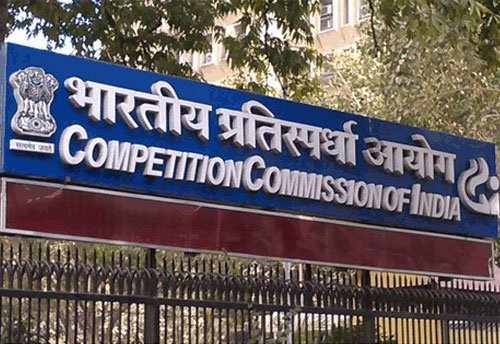Introduction
India is on the brink of a significant shift in its tax regime with the proposed Income-Tax Bill, slated to take effect from April 1, 2026. This new legislation represents a dramatic expansion of power for tax authorities, granting them unprecedented access to the digital lives of citizens. While Section 132 of the Income-Tax Act historically permitted searches and seizures of physical assets for suspected tax evasion, the new amendments extend this authority to the expansive “virtual digital space.” This includes, but is not limited to, email accounts, social media profiles, bank accounts, and cloud storage. The core concern here lies in the absence of clear boundaries. Unlike tangible documents, digital devices like smartphones consolidate every facet of modern existence—from financial data to private conversations, family photos, and even health records. The Bill fails to distinguish between information genuinely relevant to tax inquiries and highly personal, non-relevant data, opening the door to potential overreach and a deep intrusion into private lives.
Privacy Under Siege: The Shadow of Puttaswamy
This legislative push directly confronts India’s evolving jurisprudence on privacy, particularly the landmark 2017 K.S. Puttaswamy (Retd.) v. Union of India1. The Supreme Court unequivocally declared privacy a fundamental right, flowing from Article 21 of the Constitution, which protects life and personal liberty. The Puttaswamy ruling established a stringent four-pronged test for any state action infringing on privacy: legality, legitimacy, proportionality, and balancing.
The proposed Bill, while meeting the legality test as a piece of legislation, demonstrably falls short on the crucial tests of necessity and proportionality. It lacks explicit limits on what can be accessed, fails to mandate specific reasons for device seizure, and offers no safeguards for irrelevant personal information. Treating digital information with the same principles as physical documents disregards its fundamentally different and far more intrusive nature. The absence of judicial pre-approval or independent oversight mechanisms further exacerbates concerns about the potential for arbitrary misuse of these wide-ranging powers.
The Peril of Weaponization and a Misguided Defense
Adding to the apprehension is the chilling prospect of these new powers being weaponized. Against a backdrop of increased raids on media organizations, there are fears that the expanded authority could be strategically deployed to target journalists, opposition political parties, and civil society organizations perceived as critical of the government. This concern is heightened by existing judicial precedents that have often admitted evidence obtained through procedurally flawed methods, creating a dangerous environment where tax enforcement could devolve into a tool for surveillance and intimidation.
A common, yet fundamentally flawed, argument often used to dismiss these privacy concerns is the “nothing to hide” fallacy. This argument misunderstands that privacy is about personal autonomy and dignity, not about concealing wrongdoing. Individuals, even those leading perfectly legal lives, have a legitimate expectation of control over their personal information—their private conversations, medical history, and personal photos. This fallacy also overlooks the inherent risks of official abuse, the misinterpretation of data taken out of context, and the chilling effect pervasive surveillance can have on free speech and democratic engagement. As established in cases like Shreya Singhal vs U.O.I2 and K.S. Puttaswamy Judgement, constant surveillance can lead to self-censorship, undermining core democratic principles.
Seeking Safeguards: Judicial and Legislative Avenues
While citizens may seek judicial recourse against these enhanced powers, the effectiveness of such action remains uncertain. Courts could potentially mandate judicial authorization for electronic searches and define narrow parameters, but consistent application is not guaranteed.
Therefore, legislative reforms are crucial. Recent acts like the Bharatiya Nagarik Suraksha Sanhita (BNSS) and the Bharatiya Sakshya Adhiniyam (BSA) have introduced some positive changes, such as mandatory audio-video recording of search and seizure operations, enhancing transparency. However, further measures are desperately needed. This includes enacting laws that require judicial authorization for accessing digital devices (except in exigent circumstances) and establishing clear protocols for handling electronic evidence, ensuring its integrity. Furthermore, the Digital Personal Data Protection Act, 2023, with its broad exemptions for government agencies, requires urgent amendments to limit these exemptions and establish robust, independent oversight to prevent overreach.
Conclusion
India’s proposed tax reforms represent a significant shift toward greater state access to citizens’ digital lives. While effective tax collection is a legitimate state interest, it is imperative that these expanded powers are meticulously weighed against the fundamental right to privacy, as firmly established by the Puttaswamy judgment. The current drafting of the Bill appears to prioritize tax collection to an extent that may be constitutionally objectionable, potentially sacrificing core privacy rights.
Without stronger protections, clearer boundaries, and stringent oversight, this legislation risks not only violating individual privacy but also undermining India’s democratic foundations through the potential for misuse and targeted intimidation. Laws affecting such a fundamental right must be framed with utmost caution, ensuring that legitimate state interests are advanced through means that are respectful of constitutional rights and democratic ideals.
Citations
- K.S. Puttaswamy (Retd.) v. Union of India ( AIR 2018 SC (SUPP) 1841)
- Shreya Singhal vs U.O.I (AIR 2015 SUPREME COURT 1523)
Expositor(s): Adv. Archana Shukla






